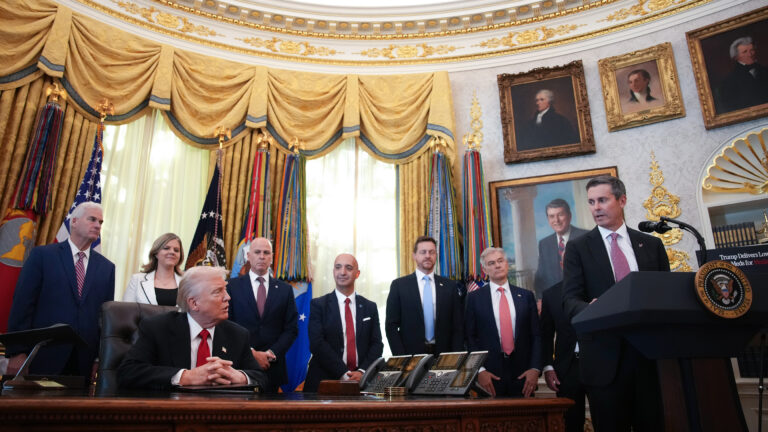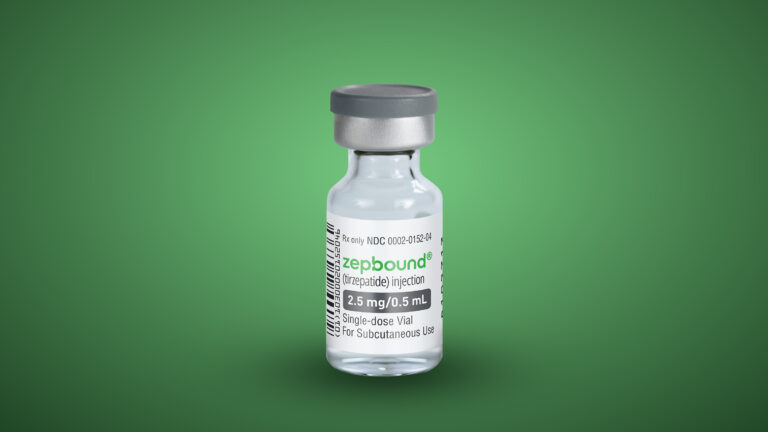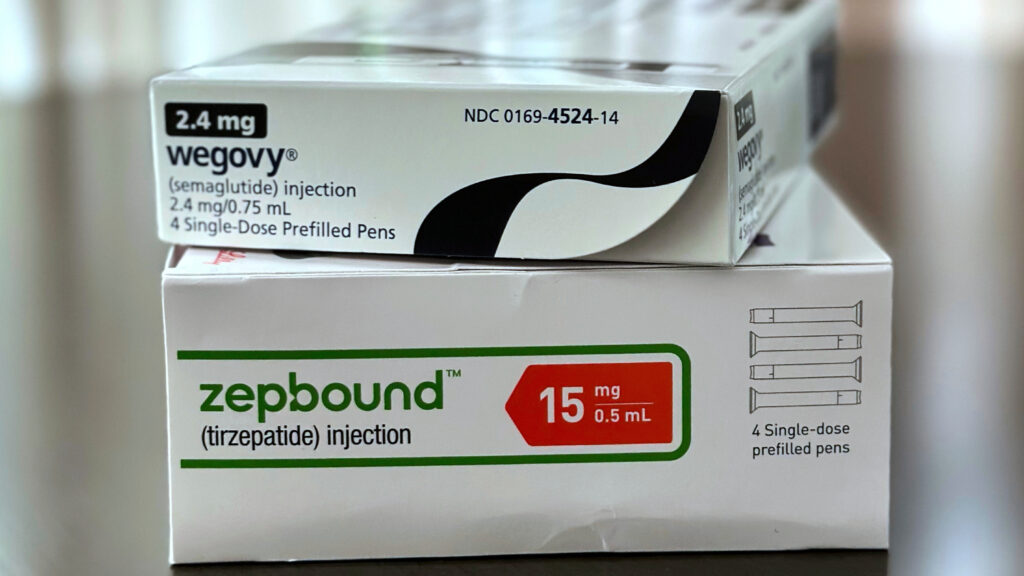The U.S. government is finally flexing its negotiating muscle to reduce GLP-1 prices and expand access to these medicines — for weight loss — in federal health programs. President Trump’s much-anticipated “deal” with GLP-1 manufacturers Eli Lilly and Novo Nordisk makes modest steps to expand patient access to the class of GLP-1 medications for the many millions of Americans who struggle with obesity. For eligible patients (see below for more on the gnarly issue of eligibility), GLP-1 copays will be $50 per month for people on Medicare, and could be zero for many folks on Medicaid — contingent on state Medicaid programs opting in to the new scheme.
But the initiative falls far short of the revolution that’s needed to harness the true potential of medicines like Wegovy and Zepbound in the United States.
The deal misses the mark for key patient populations, including my own. I’m one of the 150 million Americans who depend on a workplace insurance plan. My employer-sponsored Blue Cross Blue Shield insurance policy — like so many commercial plans — refuses to cover Zepbound. I am left to pay Lilly out-of-pocket for my injections. Thanks to the Trump deal, I’ll get a whopping 10% discount on my current direct-to-Lilly monthly price, which will plunge from $499 to $449, saving me $600 in 2026. That’s not nothing, but I’ll still pay nearly $5,500 for the year.
Maybe I should switch to the inferior Wegovy, since Novo Nordisk — which has been struggling in the market — just announced a price cut to $349 per month for patients like me. Ooh, the price wars for paying customers like me are really heating up!
All this points to the elephant in the room: There is nothing in the Trump plan that concretely addresses commercial coverage for GLP-1s. In fact, the new arrangements seem to endorse the creeping, regressive concept of Americans being required to pay out-of-pocket, direct to drug manufacturers, for life-changing medicines.

STAT Plus: Is the White House’s deal with pharma on GLP-1 drugs a game changer?
Trump, ever the salesman, clearly has no problem with this. He’s eager for his glitzy TrumpRx website to be updated in January with links to the new breed of commercial pharmacies like Lilly Direct and NovoCare, which are designed to remove hundreds of dollars from your wallet in a matter of minutes.
This represents a complete abdication of responsibility by the U.S. government, which should be tackling commercial insurance plans and pharmacy benefit managers. Collectively, they represent the single biggest obstacle to improving GLP-1 access in America. To be fair, the administration must address the excessive GLP-1 pricing being offered to commercial plans by the manufacturers themselves. That’s key to encouraging a sea change on this front.
It’s not good enough to say what the administration is currently saying, which is: “Hey, don’t worry about whether you’re covered by your plan, just pay out-of-pocket via TrumpRx!”
But let’s take a step back. One of the most potent clinical benefits of GLP-1s for weight loss is their ability to prevent type 2 diabetes, a condition they also successfully treat. In fact, it’s the main reason I started treatment with Zepbound. (OK, OK, I really wanted to get svelte, fit my clothes again, and look better at parties — but dodging diabetes was a close second.)
Despite this wonder of preventive medicine materializing at our fingertips, under the Trump deal, an economic case can actually be made that it makes more fiscal sense for me to let my weight go unchecked, allow myself to develop diabetes, and then get my GLP-1 medicine fully covered by my insurance plan.
Even before the Trump deal, this kind of burn-the-house-down thinking began to creep into my mind, along with a burning question: “Why am I paying $500 for this medicine every month when my friend with diabetes is paying ZERO for the exact same thing?” Along with another pressing question, hard on its heels: “And why am I being penalized when I might be saving the U.S. health care system a ton of money by not developing type 2 diabetes with all of its potential life-threatening complications?”
Looking at Medicare and Medicaid enrollees (all 120 million of them), the eligibility criteria that are being set under the Trump deal are too narrow to make a major difference. Yes, people who have a body mass index (BMI) score of 35 or 40+ (which means they have moderate or severe obesity) are likely to be covered, no questions asked. But, according to reports, it’s not going to be sufficient to have a BMI over 30 (which means you are already obese). No, you’ll have to have a BMI exceeding 30 and “kidney disease, heart failure or uncontrolled hypertension.”

Eli Lilly’s weight loss and diabetes drug tops Keytruda as world’s best-selling medicine
You could have a BMI of 27, meaning you are overweight (and so, potentially, already on the path to obesity), but you can only secure coverage if you are also prediabetic or have established cardiovascular disease.
In other words, under the new plan, government-sponsored health insurance plans are not genuinely viewing obesity — in and of itself — as a chronic disease worth combating at any stage of the disease’s progression. (It should be noted that some of this logjam stems from a long-standing prohibition on Medicare covering anti-obesity drugs, a restriction that Biden attempted to overturn, but Trump declined to pursue.)
Predictably, exacting eligibility criteria lead to tepid patient access results. The current administration itself estimates that only about 10% of the overall Medicare and Medicaid population will become newly eligible for GLP-1 drugs through the initiative.
In summary, under the Trump plan, the U.S. health system continues to fail Americans — by not viewing obesity as a disease, by not prioritizing anti-obesity treatments with all their attendant clinical benefits, and, above all, by not forcing both commercial and federal insurance plans to cover these treatments in a much more inclusive manner.
We’ve known about America’s obesity crisis for decades.
Have we learned nothing?
Gavin Hart has been working in health care public relations for 30 years. He appreciates Big Pharma’s innovations — as long as they are accessible to the patients who need them.

